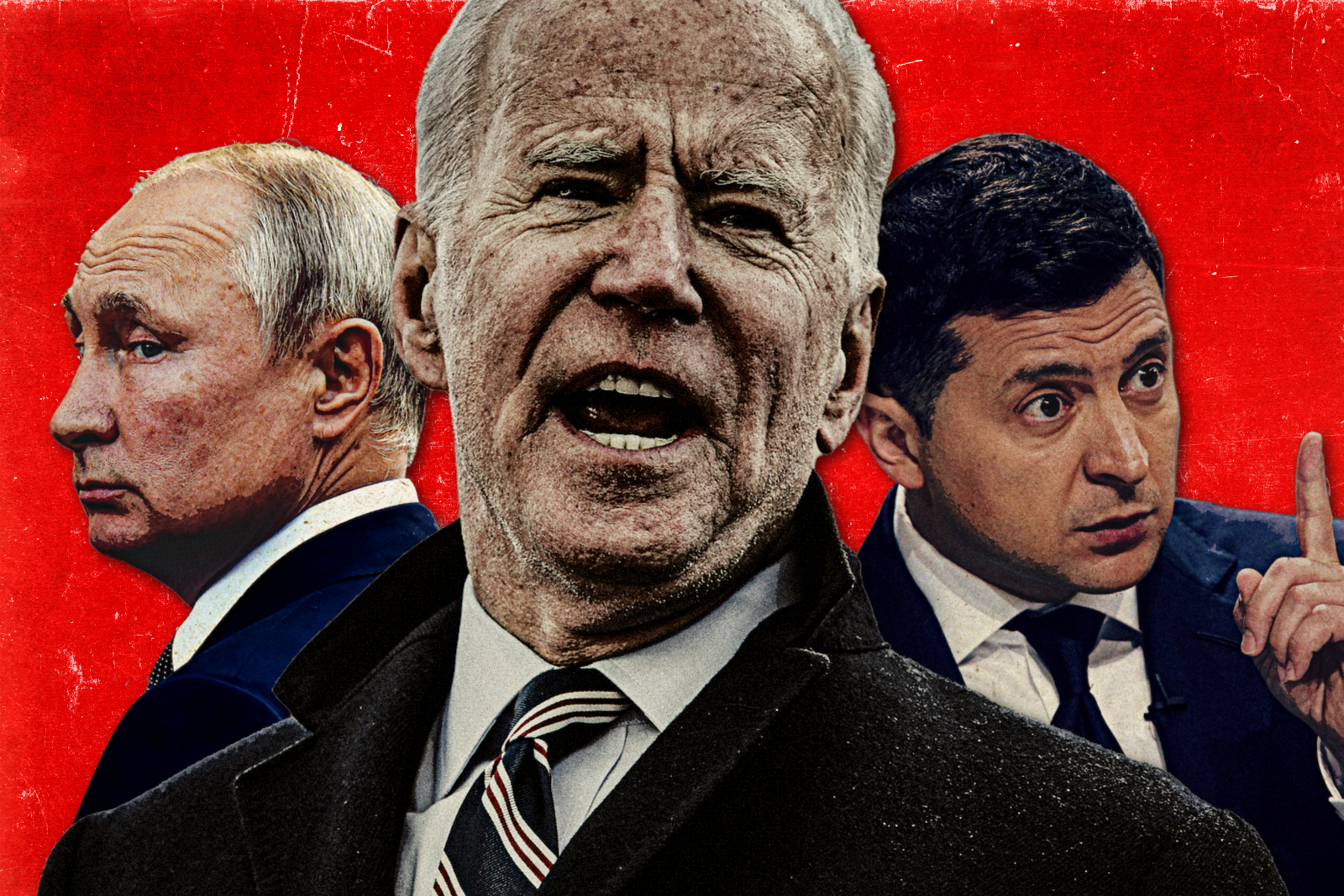
Nuclear Armageddon an Uncomfortable Reality of the Ukraine War
In his direst assessment yet, President Joe Biden warned the world could face “armageddon” if Russian President Vladimir Putin uses nuclear weapons in Ukraine. The risk of nuclear escalation continues to increase due to the military approaches that Russia, Ukraine, and the United States have adopted for winning the stalemated conflict. Despite this risk, 70 percent of Ukrainians favor fighting to win the war. Given these circumstances, the only viable solution to prevent a nuclear catastrophe is that the U.S. encourages secret negotiations between Russia and Ukraine.
Putin believes that the possibility of Ukraine joining NATO is an existential threat to Russia that only Kyiv’s capitulation will prevent. Putin’s categorization of Ukraine’s membership in NATO as a threat to Russia’s security raises the stakes of the conflict. In practical terms, this means that the war must deliver results. Putin cannot afford to lose since it would be a national and personal embarrassment. Faced with such high stakes, Putin may take greater risks to win the war, like using nuclear weapons as he, and his cronies like Dmitry Medvedev, his former prime minister, have repeatedly suggested since the start of Russia’s invasion.
On the other hand, Volodymyr Zelensky has vowed to take back Crimea—which was illegally annexed by Russia in 2014. The liberation of Crimea would be a total defeat for Putin. He would be worse off than when he started the war, increasing the likelihood of nuclear escalation. Avril Haines, the U.S. Director of National Intelligence, recently stated that Putin would authorize the use of nuclear weapons if “he perceives Russia is losing in Ukraine.” Potential desperation from Putin to portray victory in Ukraine increases the risks of the war escalating.
Furthermore, a Ukrainian attack aiming to recuperate this region would fulfill Russia’s military doctrine on the use of nuclear weapons, which allows for the use of such weapons if the Russian state faces an existential threat from conventional weapons. From a Russian perspective, Crimea is Russian territory, and a Ukrainian attack aiming to retake this region would be an existential threat to Russia.
Meanwhile, Biden continues to support Ukraine in defeating Russia “for as long as it takes” by sending more than $16.8 billion in military aid. Moreover, according to Lloyd Austin, the U.S. Secretary of Defense, the U.S. wants “to see Russia weakened to the degree that it can’t do the kinds of things that it has done in invading Ukraine.” The Biden administration has invested so much in the Ukraine war—both materially and rhetorically—that a Russian victory would represent a devastating defeat for the U.S. Therefore, Russia must not prevail in the war.
If Russia starts winning the war, the U.S. would be under pressure to increase its support for Ukraine by providing weapons that it has remained reluctant to send due to wariness about escalation. These weapons include long-range missiles, which are capable of striking targets within Russia. Sending these arms could provoke Putin to use more drastic means, including nuclear weapons, to bring the war to an end. Furthermore, the use of these missiles could be interpreted by Putin as an indirect American attack on Russian territory, increasing the risks of nuclear escalation. Simply put, the more successful each country is at achieving its military objectives, the more likely the war may turn nuclear.
Similarly, the war aims of each country do nothing more than prolong the war, which increases the risk of nuclear escalation. The longer the war goes on, the more likely it is that the U.S. and its NATO allies become deeper involved in the conflict. Given the high stakes of the war, there is potential for miscalculation and unintended escalation. A case in point is the landing of a Ukrainian missile into a Polish village, which killed two Polish citizens. Similar events might pull the U.S. and NATO into Ukraine, which is another scenario, according to Avril Haines, where Putin might use nuclear weapons.
Due to the risk of nuclear escalation, all parties have a vested interest in stopping this war now before it continues escalating. Ukraine and Russia should follow the example of the U.S. and the Soviet Union during the Cuban Missile Crisis. The U.S. and the Soviet Union avoided nuclear armageddon by engaging in secret negotiations. Similarly, negotiations to end the war in Ukraine must begin in secrecy.
Instead of letting both countries set preconditions for entering negotiations, Biden must take the initiative and propose an agenda, a day, and a location for secret talks to begin. Since the U.S. is the largest supplier of military aid to Ukraine, Biden has enough leverage to bring Zelensky to the negotiating table. Moreover, given that Biden was the only head of state with which Putin wanted to negotiate before attacking Ukraine, it is likely that Putin welcomes the U.S.’s willingness to compromise.
Secretly discussing a potential peace agreement will take away pressure from the parties and give them more flexibility to compromise. This approach will also allow each side to build mutual trust and confidence––basic elements for a lasting peace in Ukraine. The fifteen-point draft deal proposed by Zelensky in the weeks following the invasion will provide useful talking points for these meetings. For instance, parties should discuss less contentious topics like rights for Russian speakers in Ukraine and leave territorial disputes for later. Agreeing on small issues will help both sides feel more invested in the peace process and reduce the incentives for nuclear escalation. Ultimately, these secret talks will lay the groundwork for a Russian-Ukrainian peace agreement.
Sometimes, diplomacy must happen behind closed doors for countries to solve their differences and for everyone to reap the benefits of international peace and security.

